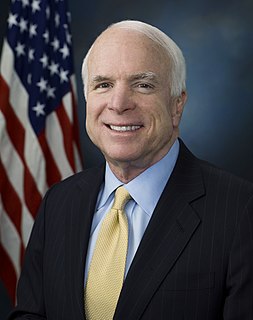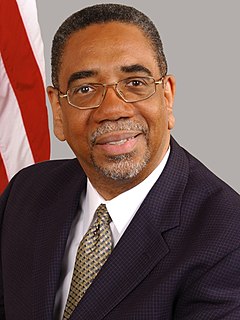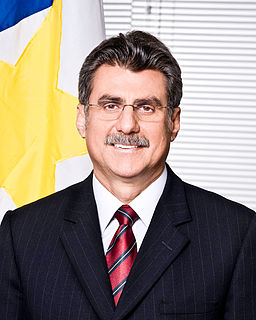
The 2008 United States presidential election in Iowa took place on November 4, 2008, in Iowa, as part of the 2008 United States presidential election. Voters chose 7 representatives, or electors to the Electoral College, who voted for president and vice president.

The 2008 United States presidential election in California took place on November 4, 2008, in California as part of the 2008 United States presidential election. Voters chose 55 electors, the most out of any of the 50 states, to the Electoral College, who voted for president and vice president. California was won by Democratic nominee Barack Obama with a 24.1% margin of victory. No Republican has carried the state in a presidential election since 1988.

The 2008 United States presidential election in Indiana took place on November 4, 2008, and was part of the 2008 United States presidential election. Voters chose 11 representatives, or electors to the Electoral College, who voted for president and vice president.

The 2008 United States presidential election in Massachusetts took place, as in all 50 states and D.C., as part of the 2008 United States presidential election of November 4, 2008. Voters chose 12 representatives, or electors to the Electoral College, who, in turn, voted for the office of president and vice president.

Barack Obama served three terms in the Illinois Senate from 1997 to 2004, when he was elected to the United States Senate. During this part of his career, Obama continued teaching constitutional law part time at the University of Chicago Law School as he had done as a Lecturer from 1992 to 1996, and as a Senior Lecturer from 1996 to 2008.

The 2008 United States presidential election in Wisconsin took place on November 4, 2008, and was part of the 2008 United States presidential election. Voters chose 10 representatives, or electors to the Electoral College, who voted for president and vice president.

The 2008 United States presidential election in Oregon took place on November 4, 2008, and was part of the 2008 United States presidential election. Voters chose 7 representatives, or electors to the Electoral College, who voted for president and vice president.

The 2008 United States presidential election in Vermont took place on November 4, 2008, concurrent with the federal election in all 50 states and D.C., which was part of the 2008 United States presidential election. Voters chose 3 representatives, or electors to the Electoral College, who voted for president and vice president.

The 2008 United States presidential election in Connecticut took place on November 4, 2008, and was part of the 2008 United States presidential election. Voters chose seven representatives, or electors to the Electoral College, who voted for president and vice president.

The 2008 United States presidential election in Arizona took place on November 4, 2008, and was part of the 2008 United States presidential election. Voters chose 10 representatives, or electors to the Electoral College, who voted for president and vice president.

The 2008 United States presidential election in Texas took place on November 4, 2008, and was part of the 2008 United States presidential election. Voters chose 34 representatives, or electors to the Electoral College, who voted for president and vice president.

The 2008 United States presidential election in Rhode Island took place on November 4, 2008, and was part of the 2008 United States presidential election. Voters chose 4 representatives, or electors to the Electoral College, who voted for president and vice president.

The 2008 United States presidential election in Minnesota took place on November 4, 2008, and was part of the 2008 United States presidential election. Voters chose 10 representatives, or electors to the Electoral College, who voted for president and vice president.

The 2008 United States presidential election in Maryland took place on November 4, 2008, and was part of the 2008 United States presidential election. Voters chose 10 representatives, or electors to the Electoral College, who voted for president and vice president.

The 2008 United States presidential election in Michigan took place on November 4, 2008. It was part of the 2008 United States presidential election which happened throughout all 50 states and D.C.. Voters chose 17 representatives, or electors to the Electoral College, who voted for president and vice president.

The 2000 United States House of Representatives election for the 1st district in Illinois took place on November 7, 2000 to elect a representative from Illinois's 1st congressional district for the 107th United States Congress. Incumbent Democratic Representative Bobby Rush faced a primary challenge from future President Barack Obama. Rush defeated Obama 61 percent to 30 percent, with other candidates combining for the remaining nine percent. Rush then defeated his Republican opponent, Raymond Wardingley, 88 percent to 12 percent, ensuring his reelection.
The 2009 Republican National Committee chairmanship election started out as a six-way race, and ended on the sixth ballot with Michael Steele becoming the first African-American chairman of the Republican National Committee. The Washington Times called it the "'Dirtiest ever' race for RNC chairman."
The Sustainability Network (REDE) is a Brazilian political party founded in 2013 by Marina Silva, a Brazilian politician from Acre.

The Brazilian municipal elections of 2016 took place on 2 October 2016 and on 30 October 2016. Electors chose mayors, vice-mayors and city councillors of all 5,568 cities of the country. The partisan conventions took place between 20 July and 5 August. The party political broadcast started in 26 August and ended in 29 September. Until 2012, on Mondays, Wednesdays and Fridays there was the broadcast for candidates to city halls, 30 minutes long. The broadcasts for candidates for city councils were broadcast on Tuesdays, Thursdays and Saturdays, also 30 minutes long. At least 97 cities had only one candidate for mayor in these elections. Besides that, 48.8% of the cities of the country didn't have more than two candidates. These were the first elections in which recently registered parties Partido da Mulher Brasileira (PMB), Rede Sustentabilidade (REDE) and Partido Novo (NOVO) participated; they were recognized by the Supreme Electoral Court in 2015. Some of the most highlighted elected candidates include liberal businessman João Doria (PSDB) in São Paulo and licensed bishop Marcelo Crivella (PRB) in Rio de Janeiro. The elections also took place after the impeachment of Dilma Rousseff and during the investigations of Operation Car Wash. However, it only affected the left-wing Workers' Party, with its reduction of elected mayors, while the centre-right Brazilian Democratic Movement Party and Progressive Party, with the most of its members investigated, had an increase of elected candidates.









